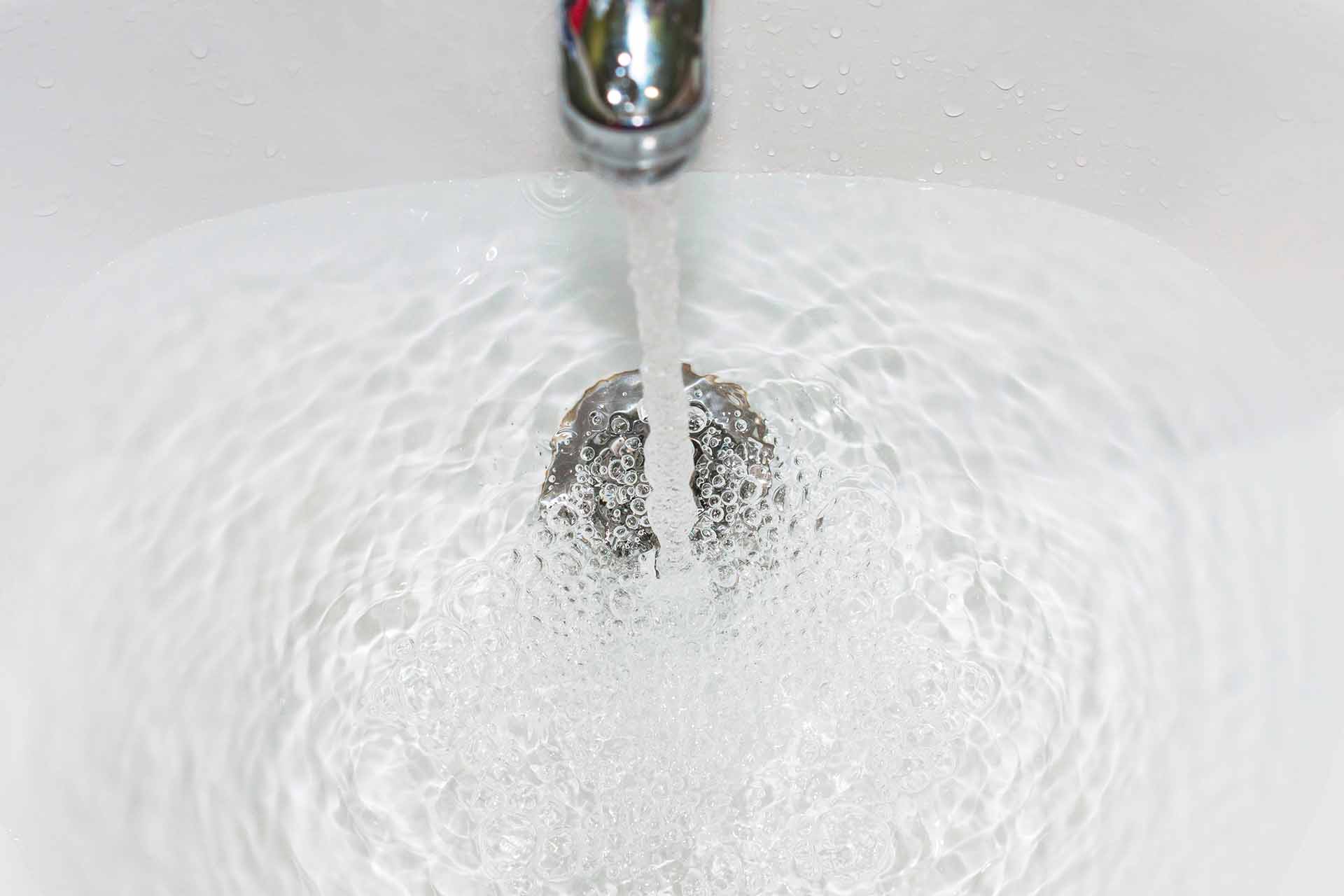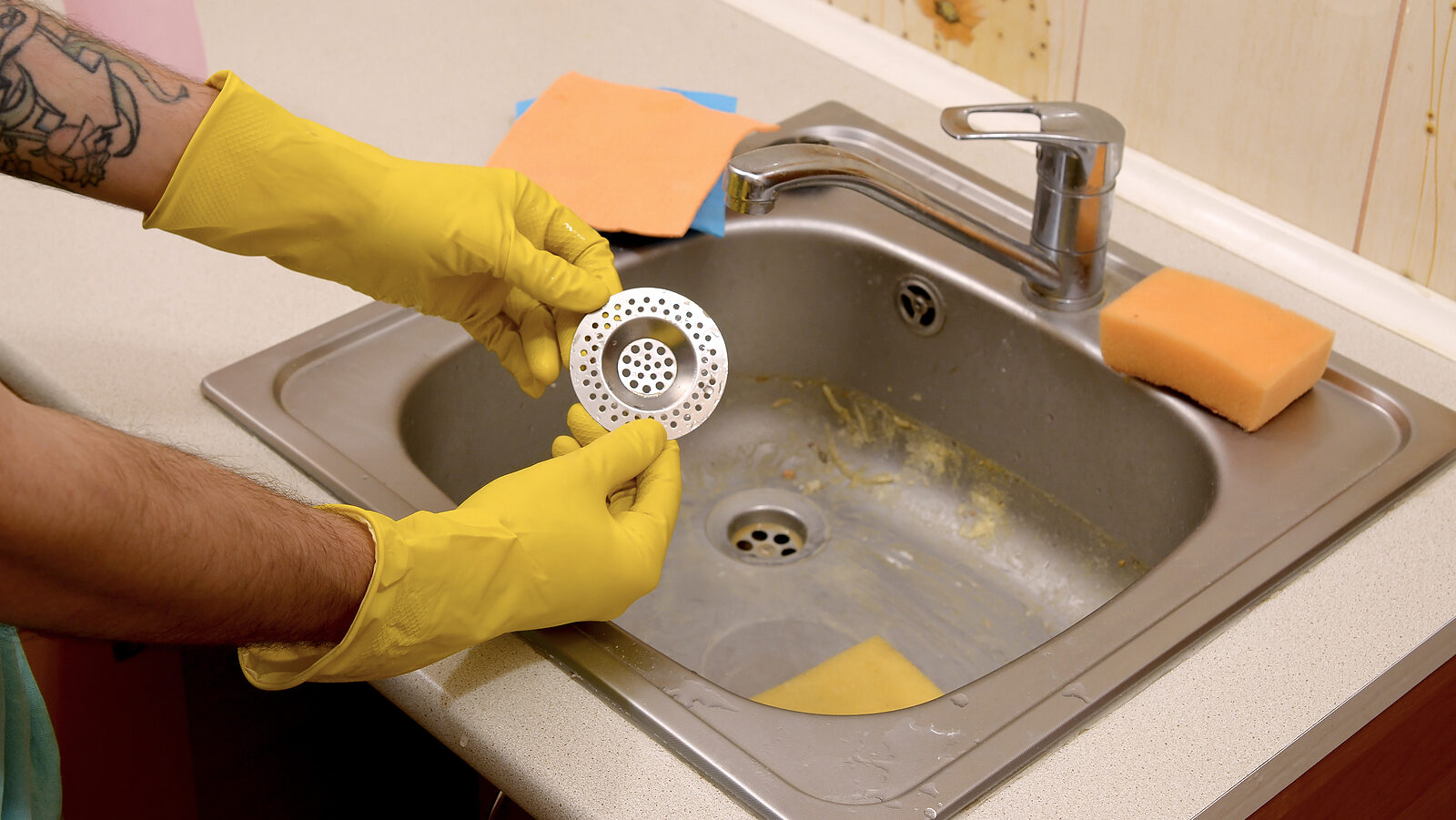Quick Ways To Address A Slow-Draining Sink
Quick Ways To Address A Slow-Draining Sink
Blog Article
The content on the next paragraphs relating to Three Common Ways to Fix a Slow Drain is especially entertaining. Read it for your own benefit and decide what you think of it.

Intro
We've all been there: You're brushing your teeth or cleaning your hands, and you see the water pooling in the sink. Instead of promptly swirling down the tubes, it sticks around, turning your once-refreshing morning routine into a small overload scene. A slow-draining sink isn't simply aggravating; it's usually an indicator of bigger pipes problems lurking under the surface. The good news is that the majority of slow-draining sinks can be repaired with a little expertise, a couple of basic devices, and some patience. Ready to tackle this job head-on? Allow's roll up our sleeves and dive right in.
Recognizing the Root Causes Of a Slow-Draining Sink
Prior to you begin poking around in your pipes, it assists to recognize what could be causing the slowdown. Comprehending the origin makes it much easier to choose the best repair.
Common Wrongdoers Behind Slow Water Drainage
So, what's clogging things up? Usually, it's a blend of daily debris-- believe hair, soap scum, toothpaste residue, and remaining food particles. In time, these tiny bits accumulate and hold on to the pipeline wall surfaces, progressively narrowing the passage and making it harder for water to travel through. Sometimes, mineral deposits from hard water can additionally contribute to the gunk, creating the perfect storm for persistent blockages.
When is it Time to Do Something About It?
If you discover the water draining slower than typical, it's a great concept to step in earlier instead of later. Waiting also long can cause finish blockages, undesirable smells, or even pipe damages. If the water takes greater than a few seconds to clean out after turning off the tap, consider it a warning and get ready to put on your do it yourself hat.
Devices and Materials You'll Need
The right devices make all the distinction. Fortunately, you won't need a fully equipped plumbing technician's van to do the job.
Vital Tools for DIY Fixes
A bettor is your go-to beginning factor. A tiny, sink-sized bettor develops suction that can displace minor clogs. For even more consistent obstructions, a drain serpent (sometimes called a plumbing's auger) works marvels. A pair of handwear covers, a flashlight, and perhaps a set of safety goggles are additionally useful.
Advised Cleansing Solutions
Mild meal soap and hot water can assist break down greasy accumulation. A blend of cooking soda and vinegar is a reliable natural home remedy, and enzymatic cleansers provide a more green approach. Keep chemical drainpipe cleansers as a last hope, as they can be extreme on your pipes.
Security First: Safety Measures and Prep work
Before you launch into unclogging mode, think about security. You're taking care of potentially dirty water and debris, so slip on a pair of gloves. If you're making use of chemical cleansers, make sure the area is well-ventilated and adhere to the guidelines on the tag.
Safety Equipment and Office Configuration
Put down some old towels or rags around the sink area to capture sprinkles. Clear away any things that could enter your way, like soap dispensers or tooth brush holders. Ensure you have good lighting-- order a flashlight if required.
Step-by-Step Guide to Dealing With a Slow-Draining Sink
Now, let's enter into the nitty-gritty. This detailed procedure will certainly lead you with simple techniques to recover your sink's water drainage.
Step 1: Eliminate and Tidy the Stopper
Frequently, the stopper (that small plug you push down to obstruct water) is the initial wrongdoer. Remove it carefully and wipe any kind of hair or crud caught around its base. Rinse it completely prior to putting it back in position.
Step 2: Use a Plunger to Remove Particles
Got that plunger ready? Setting it over the drain and give it a few company pumps. The concept is to create suction that can loosen up any kind of clog. If you see littles debris floating up, you're on the right track.
Action 3: Try a Drain Serpent or Wire Hanger
If the plunger doesn't work, it's time to bring out the drain snake. Delicately feed it right into the drain and spin as you go. You might really feel some resistance-- that's most likely the clog. Keep turning and drawing up until you eliminate the obstruction. If you don't have a drainpipe serpent, an aligned wire wall mount can work in a pinch.
Tip 4: Use a DIY Drain Cleanser
An all-natural cleaner made from baking soft drink and vinegar can break down recurring grime. Put half a cup of cooking soft drink right into the drain, complied with by half a cup of vinegar. Let it fizz for around 15 mins, then flush with warm water. This chemical reaction typically does marvels for small obstructions.
Tip 5: Rebuild and Examine the Sink
Put everything back together and run the faucet. Does the water now swirl down the tubes at a commendable rate? If yes, provide yourself a pat on the back. If not, don't misery-- there are still a couple of even more dress up your sleeve.
Alternate Approaches for Stubborn Clogs
Not all blockages are developed equal. If your sink still refuses to comply, consider these different solutions.
Baking Soda and Vinegar Technique
We already discussed this, yet it deserves noting once more. This gentle, eco-friendly technique is more secure than chemical cleansers and usually rather effective.
Enzymatic Drainpipe Cleansers
Enzyme-based cleaners make use of natural bacteria to absorb raw material. They're an exceptional selection if you're seeking to stay clear of harsh chemicals. Just bear in mind, they might take a bit longer to function their magic.
Chemical Drain Cleaners: Benefits And Drawbacks
Chemical cleaners can blast through challenging obstructions quick, however they're not without disadvantages. They can produce warm and fumes, damage pipes if used excessively, and pose environmental threats. Utilize them moderately, and constantly comply with the instructions meticulously.
Safety Nets to Maintain Your Sink Flowing
Avoidance is the very best cure. By adopting a couple of easy routines, you can maintain your sink from slowing down to begin with.
Routine Cleaning Practices
Clean down the sink basin and component area regularly. Get rid of hair or food fragments prior to they have a possibility to wash down the drainpipe.
Preventing Dangerous Substances Down The Tubes
Reconsider before discarding coffee premises, grease, or coarse veggie scraps down the sink. These offenders hold on to pipeline wall surfaces, creating obstructions with time.
Regular Maintenance Checks
Schedule a quick month-to-month evaluation. Run hot water via the sink for a couple of minutes, focusing on the circulation. If it appears slow-moving, act quick prior to it comes to be a full-blown blockage.
When to Call an Expert Plumber
Occasionally, despite just how difficult you try, that clog simply won't move. That's when it's time to generate the pros.
Signs That Show a Much More Major Concern
If your sink drains gradually despite numerous attempts, or if you see water backing up in other components (like your shower or bathroom), you might have a more severe plumbing concern hiding deeper in the system.
Stabilizing Do It Yourself Efforts with Professional Aid
While do it yourself can save you money and provide a sense of success, there's no pity in calling a professional. An expert plumbing technician can assess your whole pipes setup, making certain there's no underlying damage or lasting problem that could cost you more in the future.
Contrasting Costs and Long-Term Solutions
Before choosing, think about the big picture. An inexpensive, quick fix may solve the problem briefly, yet buying a much more irreversible remedy could save you money and tension over time.
Weighing the Expenses of DIY vs. Professional Fixes
DIY fixes commonly set you back bit more than the rate of a plunger or a bottle of baking soft drink. Professional solutions, on the other hand, come with a price however might prevent repeated concerns and costly repair work later on.
Investing in Top Quality Fixtures and Upgrades
If your sink's design adds to constant obstructions, it could be worth upgrading to higher-quality fixtures or modifying the plumbing layout. Consider this an investment in your home's performance and convenience.
Conclusion
A slow-draining sink can seem like a small irritability, but it's commonly an indicator that your plumbing needs a little TLC. By understanding the root causes, utilizing the right devices and techniques, and committing to easy preventive measures, you can keep your sink flowing freely. And when all else fails, never ever wait to employ a professional-- your home's plumbing deserves the financial investment in care and maintenance.
Three Common Ways to Fix a Slow Drain
Baking Soda Method
Boil a full pot of water. Measure out cup of baking soda and pour it down the drain. Then take cup of the magical cleansing substance known as white vinegar and drop that down there too. Allow the mixture to fizz in the drain for five minutes as the vinegar and baking soda combine. Now dump in that whole pot of boiling water. This combination of cleaning substances should clear out anything that is causing your sink to drain slowly. If it doesn t...
Zip-It
If the baking soda method doesn t clear out your drain, it may be because a significant amount of hair and/or other debris has collected there and you need to remove it. Purchase a Zip-It tool at any home improvement or hardware store and insert it into your drain. It will catch any collected hair or debris that s blocking the flow of water. Pull it out. If it s got a big clump of hair, etc. on the end, you ve probably got your culprit.
Drain Cleaner
If these methods don t work, there is the standard drain cleaner that you can also buy in a hardware store or even your local grocery store. It s better if you can use a household solution, but these drain cleaners often work in a pinch. They re very simple to use. You generally just dump them in your drain and wait. If even this method is not effective, it may be time to call the plumber.
https://www.mrrooter.com/oneida/about-us/blog/2017/july/three-common-ways-to-fix-a-slow-drain/

As a fervent reader about 4 Tips to Fix a Slow Draining Sink, I think sharing that piece of content was worthwhile. Sharing is caring. Helping people is fun. We enjoy your readership.
Booking Report this page